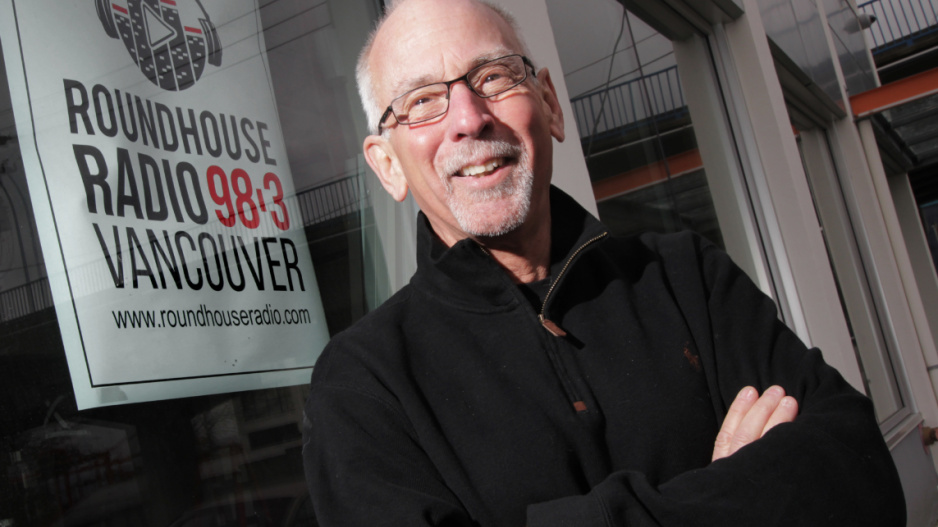New federal rules make operating a TV station in Canada more challenging at a time when owning a radio station is an increasingly attractive business.
On March 19, the Canadian Radio-television and Telecommunications Commission (CRTC) ruled that cable providers must give consumers more freedom to subscribe to individual TV channels by late 2016. The decision removed a crutch that supported TV stations by requiring consumers to subscribe to a bundle of stations even if they wanted to watch only one of its channels.
Canadian radio station executives, meanwhile, have watched their revenue growth outperform that of their video-laden competitors.
“Radio has treated us well through the years,” Jim Pattison Group owner Jim Pattison told Business in Vancouver.
Pattison, who bought his first radio station in 1965, owns Vancouver’s CJJR-FM (New Country 93.7) and CKPK-FM (The Peak, Vancouver’s New Rock 102.7) as well as 40 other stations across Canada.
In contrast, he has only three TV stations – in Prince George, Medicine Hat and Kamloops.
“I don’t think radio has got the growth that it used to have, but overall I like the business,” Pattison said. “TV is much tougher.”
CRTC data reveals that radio station revenue rose 0.2% to $1.6 billion year-over-year in 2013.
Not only did TV revenue decline 0.2% to $6.5 billion in 2013, compared with 2012, but a much deeper decline was evident for private local TV stations, whose year-over-year revenue dropped 4.6% to $1.94 billion in 2013, according to the CRTC.
Share prices of companies that generate most of their revenue from TV sank following the CRTC’s ruling. For example, Corus Entertainment Inc.’s (TSX:CJR.B) shares fell 11% on March 20 – the steepest daily drop since 2001 – likely because almost 70% of Corus’ revenue comes from TV broadcasting on channels such as W Network and YTV.
In contrast, Canada’s only pure-play public radio company, the 95-station Newfoundland Capital Corp. (TSX:NCC.A), has had a relatively steady stock market valuation as it expands through acquisition.
Revenue for the company, commonly known as Newcap, was up 17% in 2014 to $154.5 million thanks “entirely” to acquisitions, according to the company’s year-end financial statement.
Newcap paid BCE Inc. (TSX:BCE) $111.9 million in March 2014 for five radio stations, including three in B.C.: CKZZ-FM (Z95.3), CHLG-FM (LG 104.3) and CISL-AM (Smooth and Easy 650). However, the company noted that its organic revenue for fiscal 2014 declined 2%.
Two new Metro Vancouver radio stations set to launch in the summer
Entrepreneurs who plan to launch two Metro Vancouver radio stations this summer are convinced that their ventures will achieve success and avoid the pitfalls that tripped up Shore 104.1 – the last radio station launched by ambitious locals with deep pockets and a dream to run a successful independent radio station.
South Fraser Broadcasting Inc. (SFB) and Roundhouse Radio each spent more than $100,000 to participate in what Roundhouse CEO Don Shafer calls the “roll of the dice” that is the CRTC application process.
“I’d like to think that we had one of the better applications because of the need and the hole in the marketplace for the format that we proposed,” Shafer told Business in Vancouver.
“I honestly believe that if we’d applied for another music station, we wouldn’t have been considered.”
The CRTC assessed 11 applications and rejected nine in mid-2014.
Both winning bidders are now spending more than $1 million each to build radio stations, erect transmitters and hire about 30 employees each.
Shafer’s CIRH-FM (Roundhouse 98.3) will be roughly 80% talk whereas SFB owner Suki Badh will run a station that is a mix of talk and music at FM 107.7. It has yet to get call letters.
Shafer and Badh will each focus on different parts of Metro Vancouver, yet their new ventures are similar in that neither will compete with large stations to cover the entire region.
“One of the mistakes that Shore-FM made was that they anticipated that they could compete for the entire Lower Mainland market when in fact they were a low-power FM station, and they didn’t reach the entire market,” Shafer said.
Roundhouse’s announcers will discuss small festivals in East Vancouver in far greater detail than region-wide stations would. Shafer will also focus on recruiting small-business advertisers, such as a bakery on Commercial Drive, that would otherwise be unable to afford radio advertising.
Badh’s station will do similar things but in Surrey.
“We will cover Surrey and the surrounding region well,” said Badh, who is sole owner of the station. “There are no guarantees we will cover anything north of the Fraser.”
Roundhouse Radio has eight investors in addition to Shafer.
Past ownership groups have had similar dreams to run a successful Vancouver radio station focused on local chat and music.
Shore 104.1 launched in mid-2009, in an economy strained by the global financial crisis. Owners included then-Keg Restauraunts Ltd. sole owner David Aisenstat, S.L. Feldman and Associates Ltd. CEO Sam Feldman and longtime radio personality Roy Hennessy.
Astral Media bought the station for $13.4 million in early 2012 and laid off all staff.
Astral’s 2013 merger with BCE required the latter to sell the station, which it did, to Newcap; the venture is known as CHLG-FM (LG 104.3), which has a 3.7% market share. •




